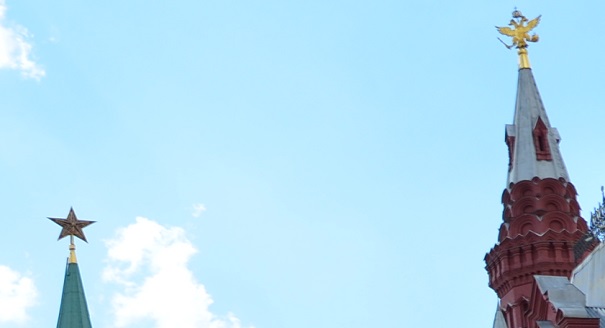These days Moscow is going through its Midsummer heat wave. Mercifully, this time there is no smoke haze and no acrid smell of burning peat fields outside the capital. Capitalizing on the good weather, Russia hands from around the world come to pay their visits and hear “what Russia thinks.” The questions they are asking could be sometimes more interesting that the answers they get. Here are some random samples from a small seminar this week in downtown Moscow.
• Given that Russia’s foreign policy today is driven more by domestic needs than by any preconceived grand design or a long-term strategy, what are the relevant constituencies—other than President Putin and his closest associates—that impact on Moscow’s foreign policy making? What are their world views? And what are the ordinary citizens’ attitudes to foreign affairs?
• If Russia is still struggling to modernize—even if the word itself is more rarely used than in Medvedev’s days—what does it identify as the main external sources of integration? How does this affect Moscow’s foreign policy?
• Russia sees itself as a continuation state of both the Soviet Union and the Russian empire. How much Soviet and czarist legacy has been imported by Moscow’s current foreign policy? In particular, has any element of universalism survived?
• The Eurasian Union is the first major Russian foreign policy project in more than 20 years. Does the Russian Federation have the needed capacity to implement it? How sustainable is the Eurasian integration process?
• With Russian domestic politics having invaded Russia’s relations with the United States and the European Union and partially occupied those formerly exclusive diplomatic preserves, what are the implications of this domestic-foreign policy nexus for Russia’s relations with the West?
• No longer an empire, what are the prospects for Russia becoming a nation state?
The guests have since left for home, and soon most of their Russian interlocutors will head to their holiday destinations. The issues will remain and will have to be addressed if one is to understand the trajectory of Russia’s spectacular transformation as an international player, still far from complete.
